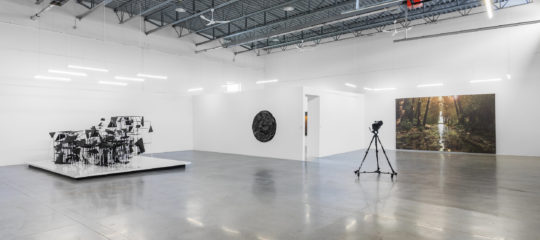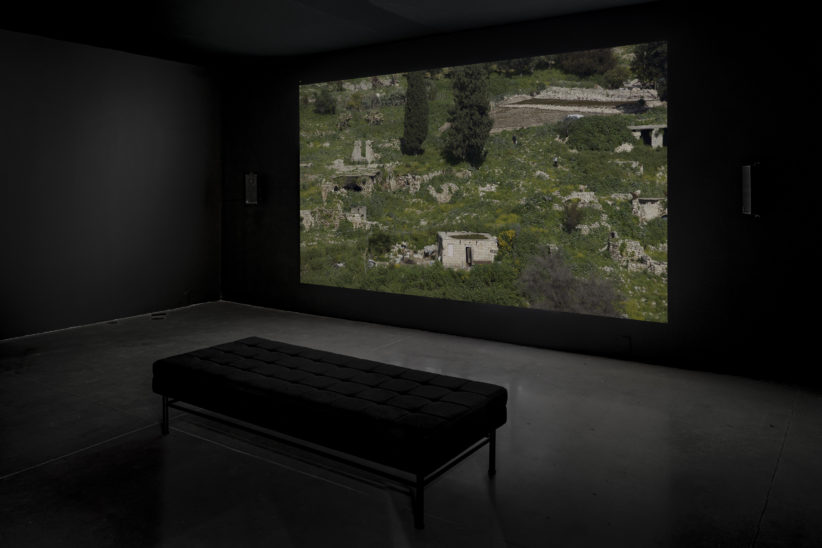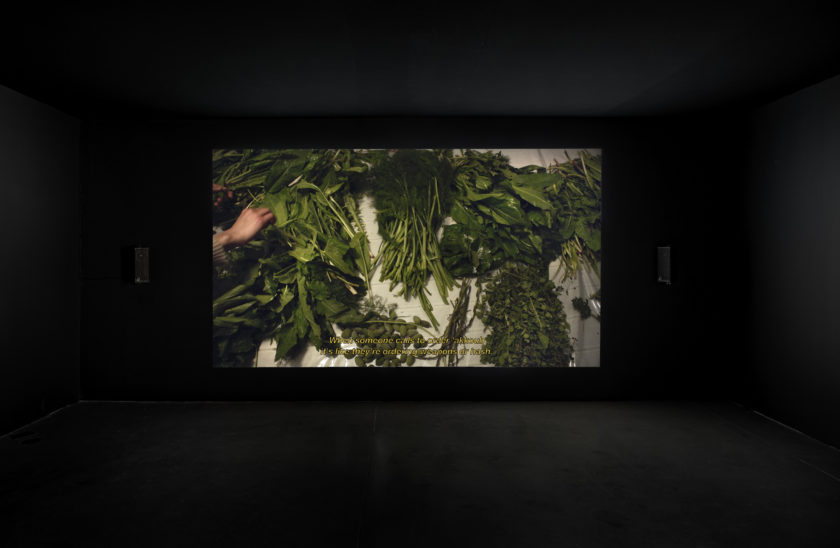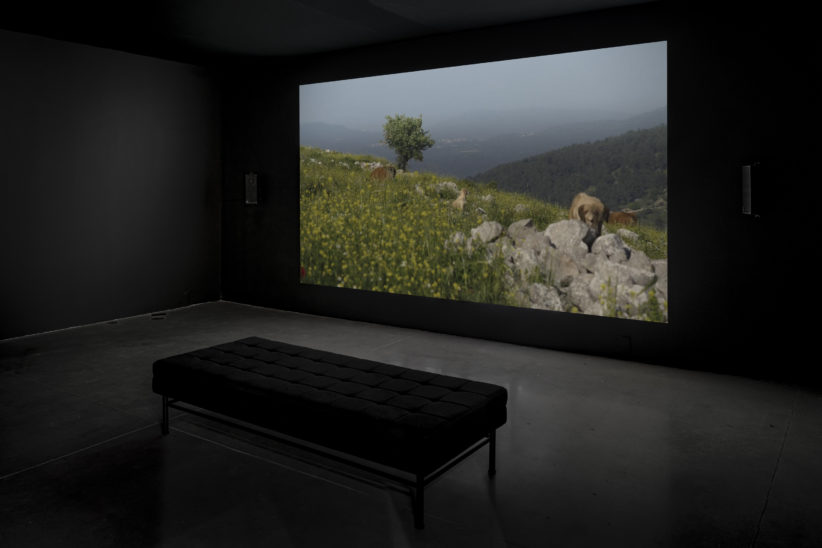Food manifests as a container for family and community histories. The food-based traditions that carry cultural memories across generations, histories of erasure and resistances, extend beyond preservation practices to foraging, the collection of wild-growing food. In 2022, the Biennial co-commissioned a new film from Jumana, Foragers, which takes up legal dynamics of nature protection in Palestine/Israel, specifically those pertaining to wild za’atar (thyme) and the artichoke-like thistle ‘akkoub (gundelia). Jumana writes:
For as long as I can remember, we would get ‘akkoub from my aunts in the Upper Galilee. They would have already generously done the hard labor of cleaning the plant of its thorns, and my mother would prepare it for cooking. Only as an adult did I understand that my aunts are perpetual scofflaws. Picking ‘akkoub has been deemed illegal by the Israeli authorities since 2005, following the ban of za’atar (wild thyme) of 1977. If you ask Palestinians why that is, many would say that it is “because Arabs like it very much.”
Hundreds of people—exclusively Arabs—have been fined and gone to trial over the collection of ‘akkoub and za’atar. For Palestinians across the country and Syrians in the occupied Golan Heights, these preservation laws constitute an ecological veil for racist legislation designed to further alienate them from their lands. This is land that, in many cases, has been expropriated by the Israeli state and administered as Jewish towns, settlements, nature reserves, military training areas, and other forms of “state land.” “The continued collection of ‘akkoub and za’atar in the wild, despite and in spite of the ban, is an act of both survival and anti-colonial resistance,” writes Jumana.
Weaving fiction, documentary, and found footage, Foragers asks: What is made extinct and what gets to live on; who gets to decide the fate of herb-picking cultures, and what are the options that remain for those who don’t?
Foragers (2022) is co-commissioned by the Toronto Biennial of Art, Berkeley Art Museum and Pacific Film Archive, and basis voor actuele kunst (BAK Utrecht) and made possible with the generous support of the Women Leading Initiative.
Audio Didactic:
Bio
Jumana Manna (born in Princeton, USA; lives in Berlin, Germany) is a Palestinian artist whose work shifts between sculpture and film, body and land, narrative and form. Her practice explores how power is articulated through relationships, often focusing on the body and materiality in relation to narratives of nationalism and histories of place. Jumana is a graduate of CalArts, Valencia and the Oslo National Academy of the Arts.
Exhibition Site
Arsenal Contemporary Art Toronto

45 Ernest Ave
Toronto ON
M6P 3M7



